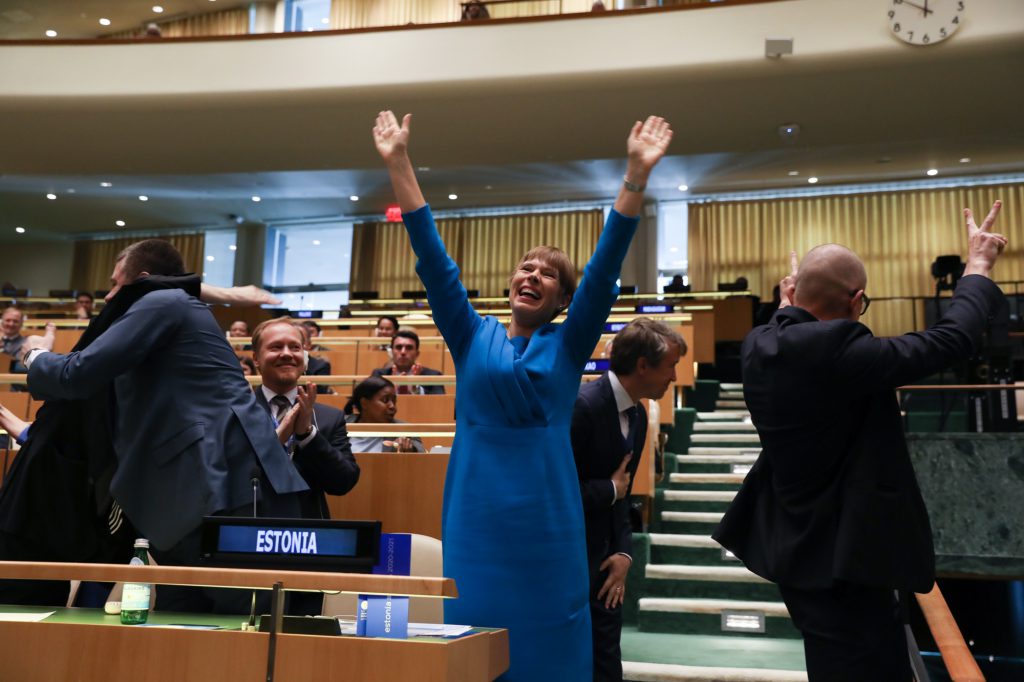Estonia has, for the first time, been elected a non-permanent member of the United Nations Security Council.
The vote took place on 7 June at the United Nations (UN) headquarters in New York City. All 193 UN member states were in present to cast their votes. Estonia was elected a non-permanent member of the United Nations Security Council for 2020-2021 with 132 votes.
The non-permanent seats on the Security Council are distributed on a regional basis. Estonia belongs to the Eastern European group and its main regional competitor for the seat was Romania, a country of almost 20 million inhabitants. Estonia has not been a member of the Security Council before, while Romania has been a member on four occasions.
In the first voting round, Estonia received 111 votes and Romania 78 – both countries short of a majority of two thirds, 129 votes, needed to get elected. In the second voting round, 132 countries voted for granting Estonia a non-permanent seat, while Romania was supported by 58 countries.
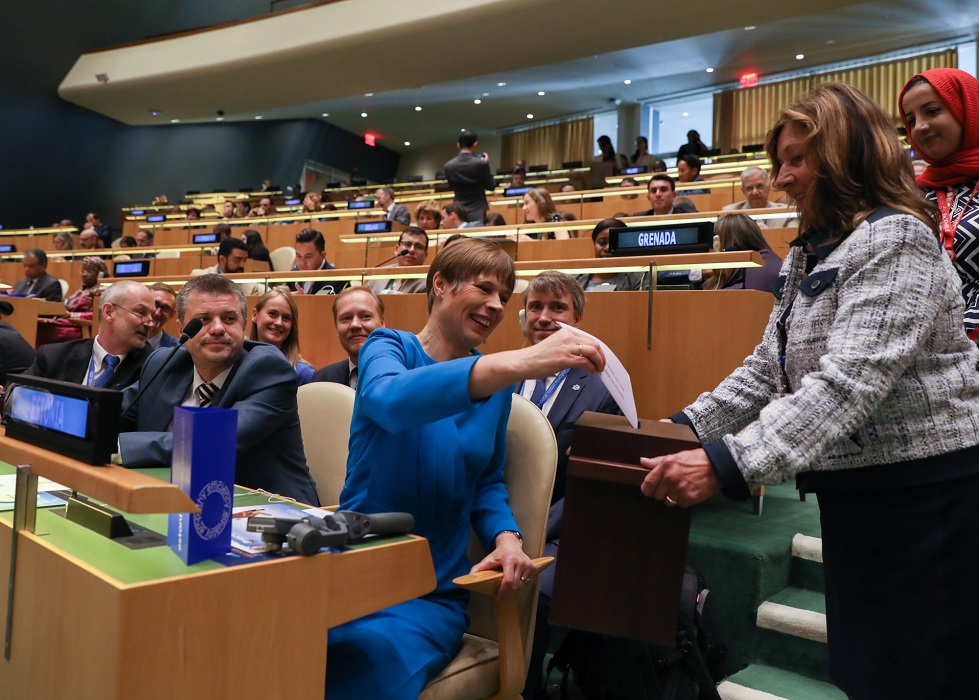
The Estonian government hopes the non-permanent membership status in the UN Security Council will raise Estonia’s profile internationally and bring valuable experience and expertise.
Campaigning hard
The Estonian foreign ministry, diplomats and the country’s president, Kersti Kaljulaid, campaigned long and hard for the seat. The Estonian government decided to put forward its candidacy for the Security Council as early as 2005, but the campaign was officially launched on 13 July 2017.
According to Margus Kolga, the special diplomatic envoy and the manager of the Estonian campaign, the Security Council membership would add value to Estonia’s security and give Estonia a chance to play a greater part on the international stage.
Estonia’s campaign, that over two years has cost the country €1.5 million, was based on three principles: equality, efficiency and empathy. “Estonia promotes these values in its current activities at the UN, and, if elected, we would also follow these principles in the Security Council,” Kolga said at the launch of the campaign.
Estonia already contributes to the UN peacekeeping operations and supports resolution of conflicts and rebuilding efforts. The country is also committed to supporting reduction of poverty, promoting sustainable development and fighting climate change.
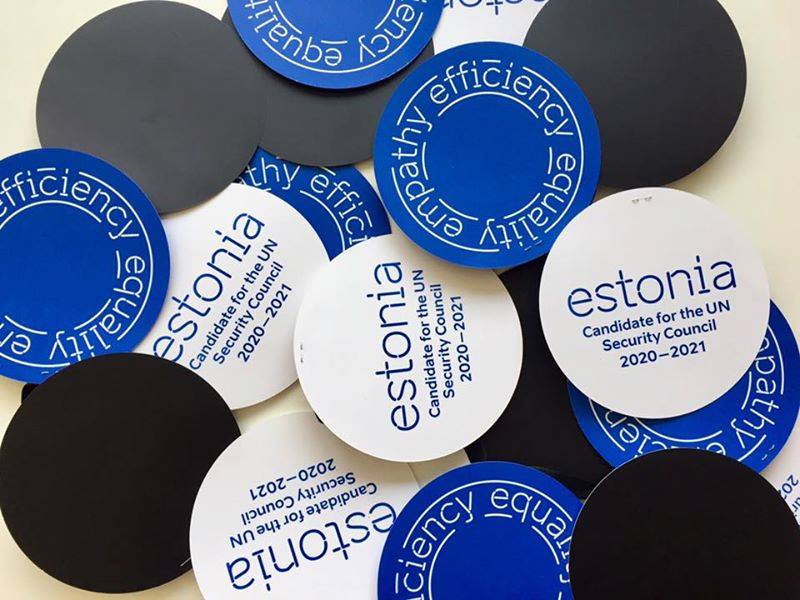
Andres Kasekamp, an Estonian-Canadian professor at the University of Toronto, told the Estonian newspaper, Postimees, that besides a good campaign, three other factors played its part for why countries did caste their vote in support of Estonia over Romania.
“First, most of the countries in the world are small [just like Estonia], and secondly, Estonia has the image of a successful digital state. And the third – and perhaps a decisive factor – is the fact that Romania [recently] recognised Jerusalem as the capital of Israel, with which it certainly lost many supporters, especially from Islamic countries,” Kasekamp said.
The only body of UN with binding authority
The UN Security Council is one of the six principal organs of the United Nations, charged with ensuring international peace and security, accepting new members to the UN and approving any changes to its charter.
Its powers include the establishment of peacekeeping operations and international sanctions as well as the authorisation of military actions through resolutions – it is the only body of the United Nations with the authority to issue binding resolutions to member states. The council held its first session on 17 January 1946.
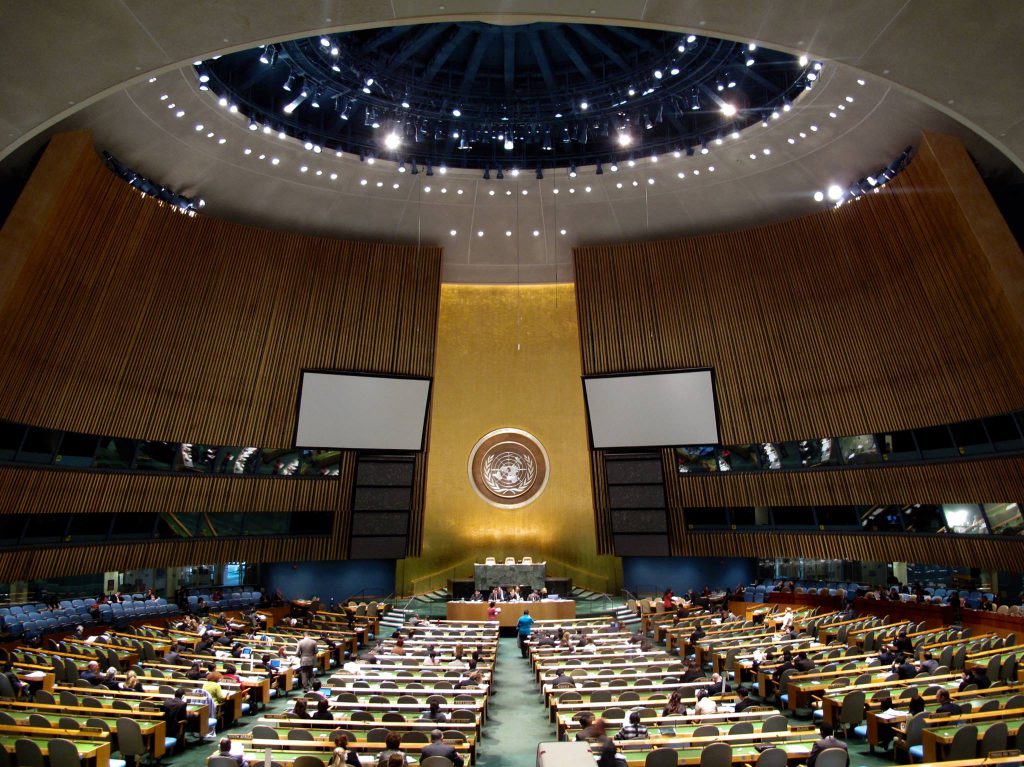
The Security Council consists of fifteen members. The great powers that were the victors of World War II – the Soviet Union (now represented by Russia), the United Kingdom, France, the Republic of China (now represented by the People’s Republic of China) and the United States – serve as the body’s five permanent members. These can veto any substantive resolution.
The non-permanent seats on the Security Council are distributed on a regional basis. There are five regional groups: Western European and other countries, Eastern European, Asia-Pacific, Latin American and Caribbean, and African countries. Estonia belongs to the Eastern European group, which has one non-permanent seat on the Security Council.
Estonia celebrates
Kersti Kaljulaid said in a statement, following the successful vote, that it’s a historic moment for Estonia – and the membership is “another layer on Estonia’s security shield”.
“This decision made today by the countries across the world that it is Estonia that will be a suitable member in the next two years to be a member of the UN Security Council, will help us to stand up for the interests of our country and our people,” the president said. “It helps us stand for a better world – for the values, without which we and many other countries and nations would have no place in the world”.
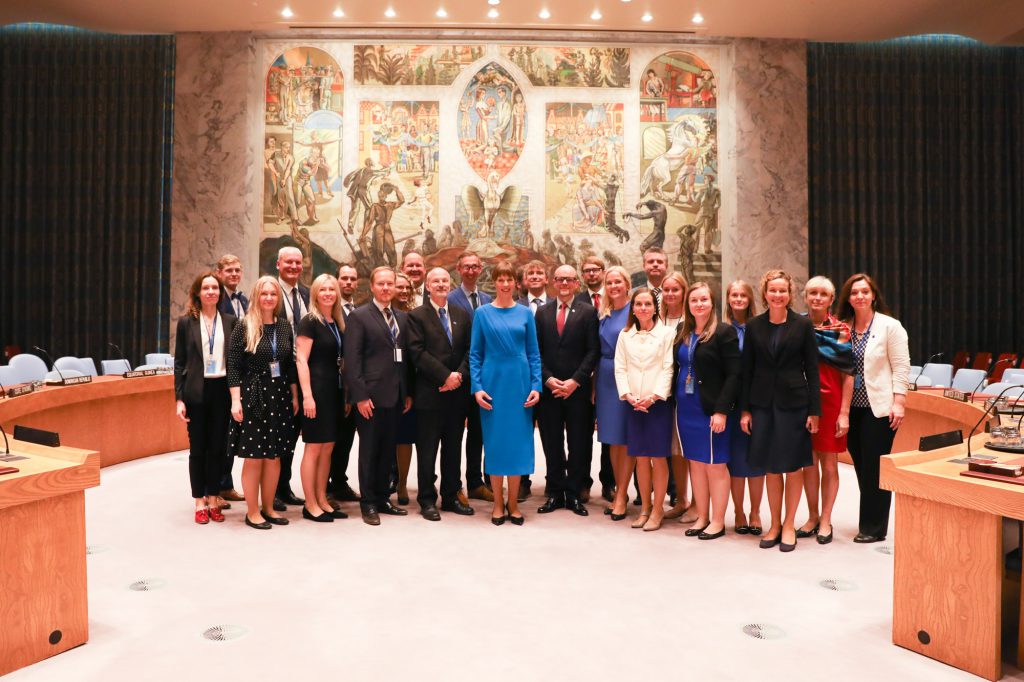
“Belonging to the UN Security Council is a historic step for Estonia. This is the next layer on our shield – on the one hand, we have more opportunities than ever to participate in the world affairs; on the other hand, our reputation and the weight of our word increases,” Kaljulaid added.
A boost for the digital state?
The Estonian foreign minister, Urmas Reinsalu, pointed out in a statement, following the vote, that apart from standing up for the world order based on international law, Estonia would also have an opportunity to share its experience in running a digital state and its knowledge on cyber security.
“As a digital nation, digital governance and cyber security topics, which are directly related to our security, are definitely at the forefront for us,” Reinsalu said.
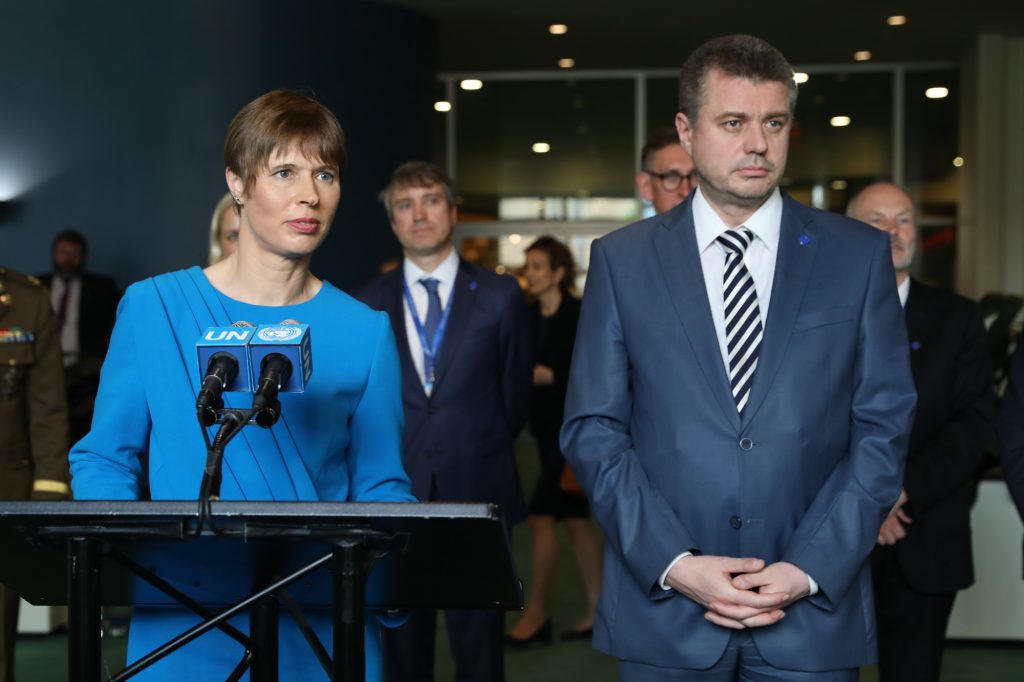
The foreign minister added that many Estonian companies had already won from the successful campaign that took Estonian president and many government figures to all corners of the Earth within last two years. During the campaign, both the public and private Estonia-led digital initiatives were promoted in many African and Asian countries.
“With this campaign, we have significantly raised Estonia’s profile in the world. We will continue using the contacts we have made to bolster our reputation as a digital country and help our companies expand their activities beyond the European Union,” Reinsalu said.
Estonia will begin its membership at the UN Security Council in 2020 with four new members: Niger, Tunisia, Vietnam, and Saint Vincent and the Grenadines. Estonia is a member with these four countries until 2021. Belgium, Germany, the Dominican Republic, Indonesia, and South Africa will continue as non-permanent members in 2020 alongside five permanent members, the United States, the United Kingdom, France, Russia, and China.
Cover: Estonian delegation, led by president Kersti Kaljulaid, cheering, after the successful voting result that made Estonia a non-permanent member of the UN Security Council on 7 June 2019. Photo by Eleri Ever.

